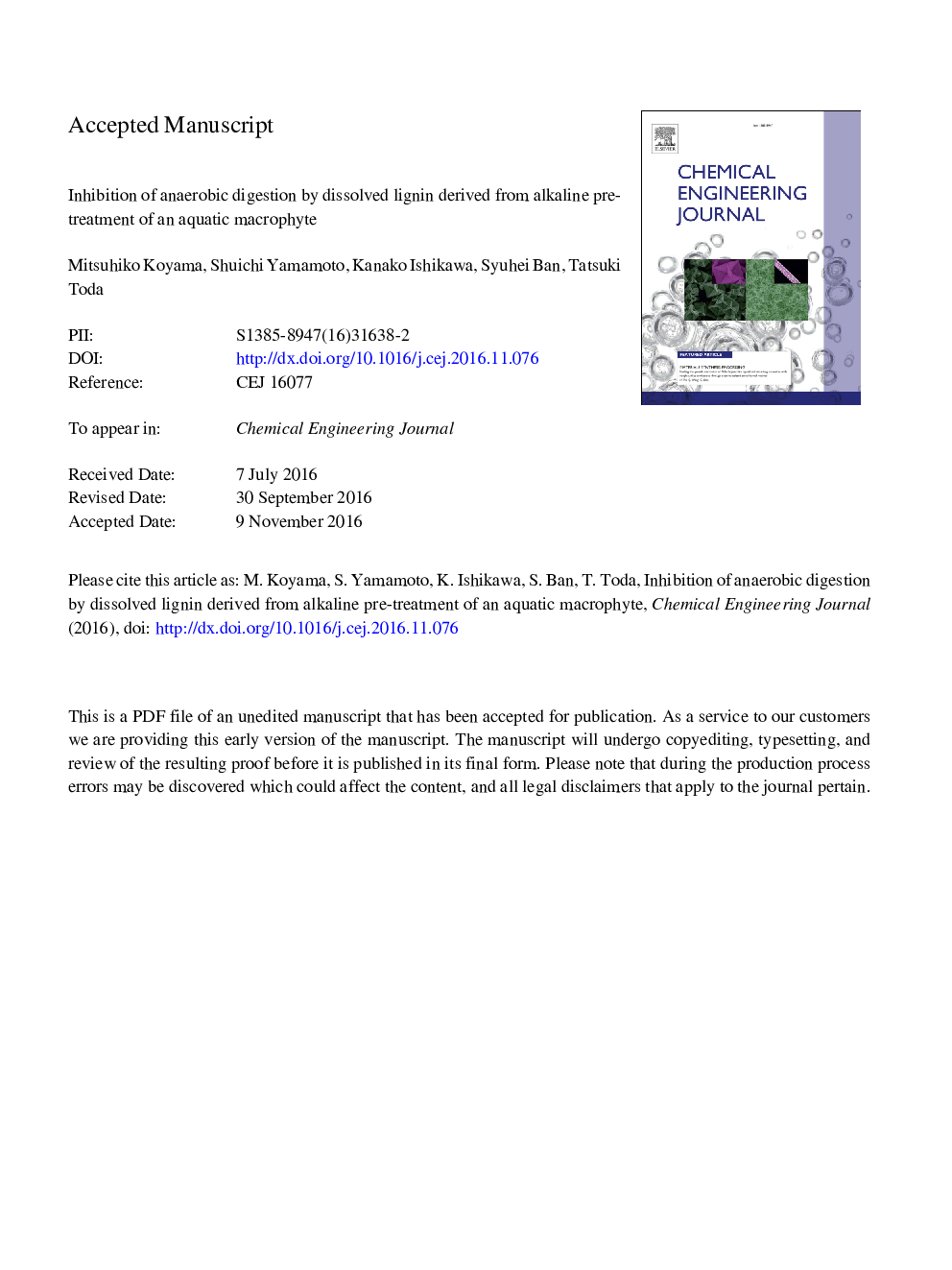| Article ID | Journal | Published Year | Pages | File Type |
|---|---|---|---|---|
| 4763405 | Chemical Engineering Journal | 2017 | 37 Pages |
Abstract
Delignification by chemical pre-treatment improves the anaerobic digestibility of lignocellulosic biomass, but the by-products can potentially inhibit the digestion process. The present study investigates the inhibitory effect of dissolved lignin on three steps of anaerobic digestion: methanogenesis, acidogenesis, and hydrolysis. Dissolved lignin was extracted from a lignin-rich aquatic macrophyte, and anaerobic toxicity tests were performed in batch mode at dissolved lignin concentrations of 0, 0.5, 1.0, 2.5, and 5.0 g Lâ1 under mesophilic conditions. Minor reductions of up to 15% and 10% against the control were observed in methanogenic and acidogenic activities, respectively, at a dissolved lignin concentration of 5.0 g Lâ1. By contrast, hydrolysis efficiency dropped by 25% against the control at a dissolved lignin concentration of 1.0 g Lâ1 and dropped by 35% against the control at a dissolved lignin concentration of 5.0 g Lâ1. These results suggest that enzymatic hydrolysis of cellulose is the step that is most susceptible to inhibition by dissolved lignin in the anaerobic digestion process.
Related Topics
Physical Sciences and Engineering
Chemical Engineering
Chemical Engineering (General)
Authors
Mitsuhiko Koyama, Shuichi Yamamoto, Kanako Ishikawa, Syuhei Ban, Tatsuki Toda,
